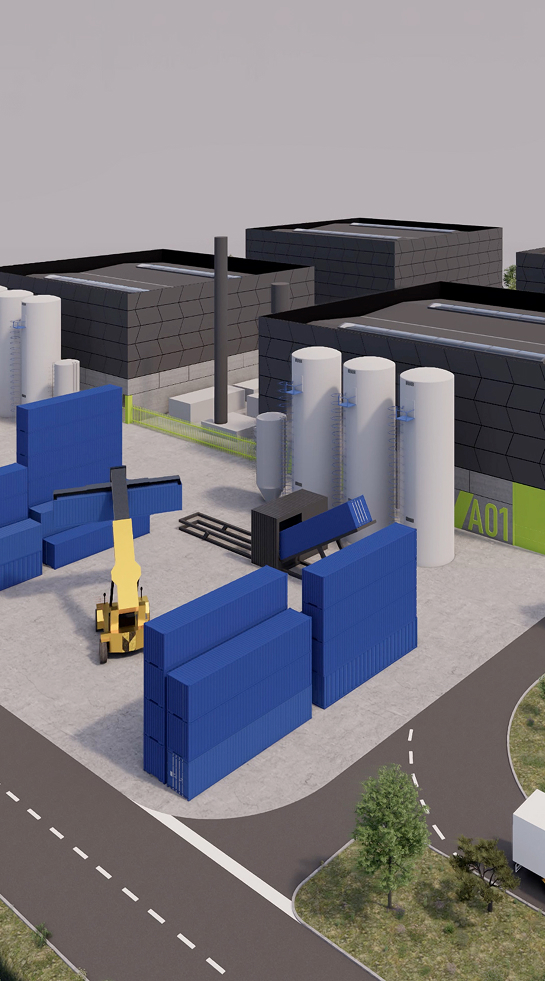
N2TR: Next
Gen Thermal
Tire Re-use

Bolder Industries is leading the NextGen Thermal Tire Re-use project (N2TR), a transformative initiative co-funded by the European Union Emissions Trading System - Innovation Fund.
Located in the NextGen District at the Port of Antwerp, this facility will apply Bolder’s proven, proprietary pyrolysis process to convert end-of-life tires into high-quality recovered carbon black (BolderBlack®), oil (BolderOil™), and gas, recovering 98% of each tire’s material content. This traceable, circular recycling process reduces lifecycle greenhouse gas emissions by up to 85% compared to virgin carbon black production and overcomes key technical barriers, enabling consistent quality.
The project will process approximately 6 million tires annually, create more than 50 local jobs, and contribute to Europe’s climate targets, industrial resilience, and energy independence.
˜6M
Tires diverted from waste annually
˜606 kt
CO2e avoided in first decade
85%
Lower carbon footprint vs. virgin carbon black
131,000
Cars equivalent GHG reduction
73,000
Homes powered per year equivalent
50+
Direct jobs created
Partnership Opportunities
Join Europe’s Circular Tire Recycling Ecosystem
The NextGen Thermal Tire Re-use (N2TR) project is actively building partnerships across the value chain. We welcome inquiries from:
Feedstock Suppliers
End-of-life tire aggregators, processors, and logistics providers
Offtake Partners
Manufacturers seeking traceable, ISCC PLUS-certified recovered carbon black (BolderBlack™), pyrolysis oil (BolderOil™), and circular raw materials
Media & Policymakers
Journalists, researchers, and policy stakeholders exploring industrial decarbonization success stories
Contact Us
Contact us to explore collaboration opportunities and become part of Europe’s industrial decarbonization leadership.
News & Media
Funded by the European Union. Views and opinions expressed are however those of the author(s) only and do not necessarily reflect those of the European Union or the European Climate, Infrastructure and Environment Executive Agency (CINEA). Neither the European Union nor the granting authority can be held responsible for them.




